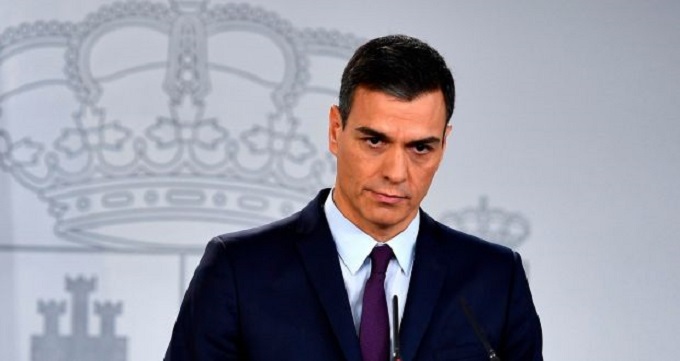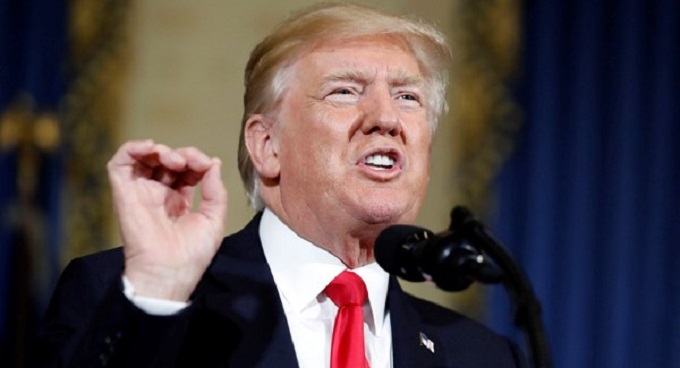Brexit defeat weakens May’s hand in last-ditch Brussels talks

London (United Kingdom) — The United Kingdom’s beleaguered prime minister has suffered another symbolic defeat in parliament over the next steps in her bid to secure a Brexit deal with the European Union.
Theresa May’s effort to secure continued backing for her attempt to wring concessions from Brussels on a key sticking point in her deal over Britain’s withdrawal from the bloc was defeated by a majority of 45 on Thursday.
It is another humiliation for the prime minister that makes it less likely she will secure changes to the controversial “backstop” mechanism to avoid the creation of a hard customs border in Northern Ireland after Brexit.
Professor Anand Menon, director of the UK in a Changing Europe academic think-tank, said that May losing support at home could hurt her in Brussels, adding that “it damages her strategy in the sense that it might give the EU some pause for thought”.
Although Thursday night’s defeat has no practical effect, it reverses a modest achievement chalked up by the British prime minister two weeks ago when she secured a majority for a Brexit motion — calling for changes to the backstop — in a parliament that remains deeply divided.
Conservative opponents of the backstop say this plan to avoid the creation of a border in Northern Ireland — which would contradict the UK’s commitments under the Good Friday peace agreement — would keep Britain in a permanent customs union with the EU.
However, the latest vote now shows that May is once again losing control of her own Conservative party in the absence of a formal deal with the EU as the clock ticks ever closer to March 29, when the UK is due to leave the bloc – deal or no deal.
Menon said the government must now “think long and hard” about its tactics for February 27 — when May is due to return to parliament with an update on her talks with Europe — because of the real danger of losing a vote on a key amendment aimed at blocking a “no-deal” Brexit.
The cross-party move led by Labour MP Yvette Cooper and Conservative Oliver Letwin would mean that if the prime minister has not got a deal through parliament by March 13, MPs could vote to require her to seek an extension of the March 29 Article 50 deadline.
Menon said: “Everything has crystallised around the 27 February [date]. If the Cooper-Letwin amendment goes through, it means the prime minister has got to say that either she wants no deal or to extend Article 50 – and then the credibility of her threat which has been ‘Either sign my deal or there will be no deal’ will dissipate.”
Following the latest vote, EU leaders may be less likely to bend to May’s pleas for the concessions on the “backstop” that will convince Conservatives who hate it to support her because Brussels knows she has not got a House of Commons majority behind her Brexit strategy.
EU leaders may now even step up pressure on May to agree with the opposition Labour leader Jeremy Corbyn on his proposals for a “soft” Brexit that keeps the entire UK in a customs union with its European neighbours.
With just 41 days until the Brexit deadline, Corbyn is due to hold talks with Brussels’ chief negotiator Michel Barnier in a bid to break the deadlock and persuade May to accept a customs union.
Although a Labour motion was also defeated in the latest round of voting on Thursday night, the result will cheer the party’s leadership as it shows growing support for their cross-party approach and a softer Brexit.
Corbyn said after Thursday night’s vote: “The government cannot keep on ignoring parliament or ploughing on towards March 29 without a coherent plan.
“She can’t keep on just running down the clock and hoping that something will turn up that will save her day and save her face.”
May’s defeat will again focus attention on a hardline group of her own MPs in the so-called European Research Group (ERG) of Brexiteers, who abstained in the vote on her motion, resulting in her defeat.
Although the ERG was itself divided, its members rebelled because supporting May would have confirmed the parliament’s recent instructions to the government to avoid a “no-deal” Brexit.
Economists say a no-deal Brexit – by which the UK would walk away from the EU without a negotiated agreement – would be disastrous.
ERG supporters say ruling out a no deal removes the UK’s negotiating leverage in Brussels as May tries to change the terms of the backstop.
Critics of the ERG claim they want a no-deal Brexit because — despite the threat to peace in Northern Ireland — they believe this would give the UK more future flexibility in negotiating trade deals globally and would enhance the country’s sovereignty. — Al Jazeera.










Comments